
 p.45 On Karl Marx
p.45 On Karl Marx Frederik
van Eeden (1860-1932) |
***
Karl Marx was certainly a man of enormous power and intellectual strength. Yet he stood with both feet in the swamp of materialism. In this he was representative of his time. In the middle of the nineteenth century, rationalism and materialism were at their highest point and pervaded all human thought and activity. Never could I submit to a mind, however great its energy and eloquence, that was entangled in such erroneous conceptions of life. To me it was turning truth upside down, explaining the higher by the lower, and taking all sense and significance out of the world.
In this resistance I stood alone among all my literary and artistic contemporaries
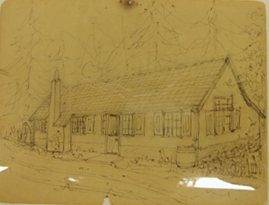 .
.
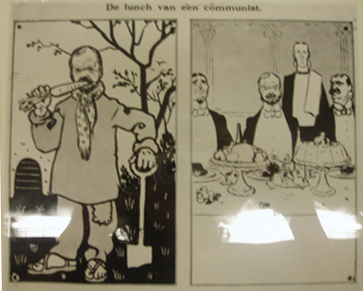 After the attacks of the aesthetic individualists I had to bear those of the
fanatic Marxians. They are known the world over for tier passionate violence,
the party spirit in its worst sense, with which they condemn or kneel before
their altars. I had my full share of their scorn, and was called Utopian, bourgeois,
and the like. When I began my campaign as a social reformer – by trying
to reform myself, and by calling for helpmates and sympathizers, I was denounced
at once and unanimously by the social-democratic press as a foolish idealist
and a deceiver of the people. The helpmates came nevertheless and I was soon
surrounded by a few enthusiasts who wanted to support my plan and to share my
endeavors. But alas! There are friends more dangerous than enemies.
After the attacks of the aesthetic individualists I had to bear those of the
fanatic Marxians. They are known the world over for tier passionate violence,
the party spirit in its worst sense, with which they condemn or kneel before
their altars. I had my full share of their scorn, and was called Utopian, bourgeois,
and the like. When I began my campaign as a social reformer – by trying
to reform myself, and by calling for helpmates and sympathizers, I was denounced
at once and unanimously by the social-democratic press as a foolish idealist
and a deceiver of the people. The helpmates came nevertheless and I was soon
surrounded by a few enthusiasts who wanted to support my plan and to share my
endeavors. But alas! There are friends more dangerous than enemies.
| p.82 – On Lady Welby´s House (author of books on Significs) "A splendid house, built in noble style, furnished with exquisite taste, containing priceless works of art and luxury, which, without extravagance, afforded no only comfort but also real intellectual and artistic delights. There was nothing to shock the eye: a well-established order, a truly aristocratic atmosphere, the evidences of self-control, and of mental labor and healthy sport were at hand to balance all the dangers of wealth. This beautiful home seemed indeed to come as near human perfection and the earthly paradise as man could hope for. Yet, notwithstanding its dazzling appearance of beauty and happiness, I never forgot that it could not be built on foundations of equity and justice. I knew that, at the bottom of this glorious estate, there must exist something rotten..." |
p. 91 – On the Labor Movement – Railroad Strike p.94 |
 |
"Produce yourself what you want, and live on what is produced by you and your fellow-workers."
 |
|
|
"I succeeded in starting a company called the "Company for the Common Possession of the Soil." Its aim was to acquire, in the first place, the means of production – the soil, source of all wealth – by the efforts of well-organized productive labor." |
 |
"I succeeded in starting a company called the "Company for the Common Possession of the Soil." Its aim was to acquire, in the first place, the means of production: the soil, source of all wealth... by the efforts of well-organized productive labor."
|
|
|
|
p.157 – On artists
"The poet and the artist are eminently useful members of society. They furnish society with goods of incomparable value. So they should be rewarded amply, and their desires should be abundantly satisfied. But to measure out their contributions to the world by dollars, the equivalents of material production, never fails to arouse in the finely sentient, artistic soul a felling of humiliation, shame and disgust. Of course they have to overcome it – and they do, alas! – but there has been no true artist, just as there has been no good doctor, to whom the feeling has always been entirely unknown. "
"Of course I had to give in to some extent, practically, in order to live. I got money for my books, and I got money for my consultations. But I never did it without inward protest and without trying to escape from what seemed to me a constant insult to my finer feelings. The only way to avoid it was to be rich, and to write and help out of sheer love, without taking money."
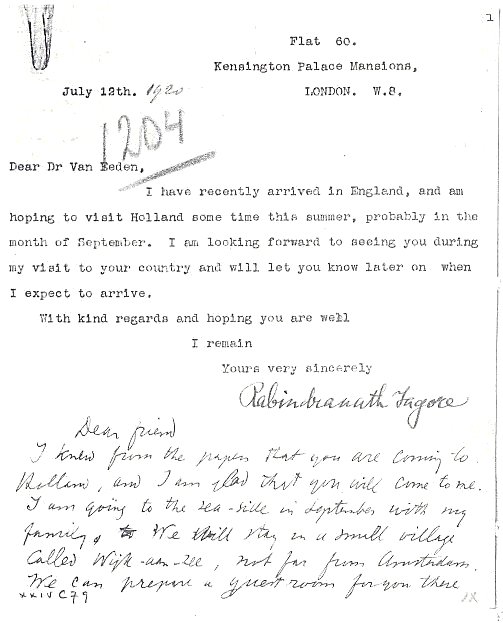 |
 |
 |
p. 173 – On progress
"From the high and wide viewpoint of biological science the great change that I have indicated as taking place in the human race is obvious and unmistakable. The numerous quarreling, fighting, and robbing groups are gradually melting into one big tightly interwoven mass, united by commerce and swift communication. At the same time, the standards of reciprocal violence, extortion, and deceit are slowly but surely changing into those of mutual understanding, fair dealing, and honest exchange. Science and knowledge are now binding all humankind together by invincible power, the advantages of mutual aid and equity are becoming daily more manifest. The tremendous transition from political state to commonwealth goes on, steadily and irresistibly, like a great stream obeying gravitation. For this transition obeys the strongest impulse of the race – self preservation."
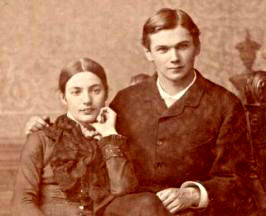
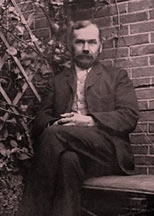
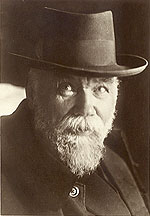
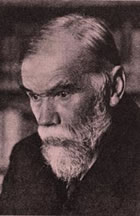 Gestorven
op 16 juni 1932
Gestorven
op 16 juni 1932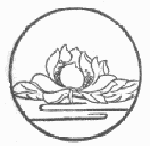
Verlovingsfoto van Frederik van Eeden en Martha van Vloten, circa 1886,
[SOCIETYOFCONTROL] [REFORM] [ARCHIVE] [CLOSE WINDOW]